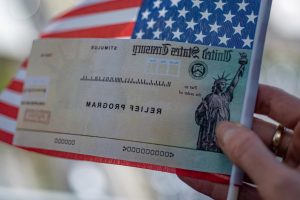'Secret' stimulus checks being sent to homeowners in huge boost 'most people don't know about'

AMERICANS behind on their mortgages may be eligible for "secret" stimulus money.
Most people are familiar with the American Rescue Plan which helps taxpayers struggling during the Covid pandemic.
Yet, the Homeowners Assistance Fund (HAF) is less well known and helps folks struggling with their house payments.
The fund helps those facing delinquencies and foreclosures due to the lockdowns caused by the coronavirus outbreak.
According to the IRS, the HAF is “to prevent mortgage delinquencies and defaults, foreclosures, loss of utilities or home energy services, and displacement of homeowners experiencing financial hardship after January 21, 2020.
"Funds from the HAF may be used for assistance with mortgage payments, homeowner’s insurance, utility payments, and other specified purposes.
"The law prioritizes funds for homeowners who have experienced the greatest hardships, leveraging local and national income indicators to maximize the impact.”
More than three million households were reported to be behind on their mortgage payments back in April.
And Yahoo! Finance reports that homeowners who have been struggling with income since January 21, 2020, are eligible for the HAF.
Americans need to apply for HAF and prove their eligibility via the application.
You can contact your state’s housing agency to apply for the benefit.
On June 9, the IRS said it had now distributed more than 169m payments worth $395 BILLION with the latest round totalling $4.2bn.
Meanwhile, both the IRS and the US Postal Service have created virtual kiosks to give Americans tracking tools to determine how much cash they're getting and when it’s coming.
IRS created the Get My Payment tool where cash-strapped individuals and families can get daily updates on their payment statuses.
And if payment is expected in the form of a paper check or EIP debit card through snail mail, then there’s a nifty tool that the US Postal Office tool called Informed Delivery.
Source: Read Full Article

